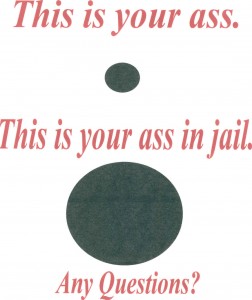Chris Trotter doesn’t want to debate, which is good, because there’s really no point to it – his arguments and mine are at cross purposes because we differ on a key point: whether support for independent self-determination for power minorities is necessary to call oneself a ‘progressive’. Chris doesn’t think so. As far as he’s concerned, MÄori self-determination is a nice idea, so long as it doesn’t try to take a different line to the honkey Marxist agenda which he misdefines as ‘progressivism’. If that were the case, then this “well-meaning but misguided political naïf” would need to turn in his cloth cap. But progressivism hasn’t ever just been about the white working classes dictating the political agenda to other power minorities; it’s never held that the needs of all power minorities be crushed by the worker solidarity agenda. That’s why my previous post was directed at the “Marxist left”, not at the progressive movement. I’m ok with not being part of that clique – comfortable, as Danyl Mclauchlan said, having no ideological flaws that a few decades digging canals in Fiordland wouldn’t set straight.
The progressive movement has been about power minorities supporting each others’ political agendas against those who would keep political power in the hands of patrician elites. Diversity is a political strategy. You should support peoples’ right to make their own political decisions, even if you disagree with those decisions, because if you don’t you could find support for the right to make your own political decisions to be somewhat lacking. So while Chris is playing the No True Scotsman game, I can play, too: if you don’t support the rights of indigenous people to determine their own political destiny, you’re not a progressive. More in the nature of a slogan: if you’re not a brogressive, you’re a fauxgressive.*
Until we can come to some sort of sense on this matter there’s no point in continuing the discussion. Chris, by his repeated denial and denigration of indigenous rights to political self-determination, criticising the independence of the Greens from Labour, and in denying that women ought to be free from sexual predation as of right, seems well on his way to becoming one of those conservative baby-boomers which are the subject of his latest column. For shame.
Edit: I withdraw and apologise for the redacted paragraph above, as a response to Chris’ justified complaints about my conduct here. This wasn’t up to the KP standard, and I’m sorry for that. I’ve replied to Chris in the comments of his thread on the hope of more meaningful engagement.
Meanwhile, Relic and Imperial Zeppelin have posted good responses to my last post on this matter, which are worth responding to and which I think neatly illustrate the problems I have with this sell-out / kupapa / brown tories / haters & wreckers line of argument.
Imperial Zeppelin, first:
Where do the Maori and Labour Parties come into the equation? Both these political entities may well claim to advocate on class and/or race issues, but do they?
[…]
It would appear reasonable to expand on Marty Mars’ statement and contend simply that race and class issues (along with all the others) will not be resolved as long as you leave the resolution to others; never mind others who are beholden to interests inimical to class, race, gender and environmental interests.
I both agree and disagree, but this gets to the nub of the matter: power minorities need to drive their own political agendas. My view is that while neither the Labour party nor the mÄori party perfectly represent their nominal constituencies, they are nevertheless best-placed to advocate for those constituencies. Nobody else can do it for them; the degree of their success or failure will or ought to be be reflected in their electoral support.
Relic:
how about a quote from V.I. Lenin to back up the bus a little-“politics are the concentrated expression of economicsâ€
This is precisely what’s wrong with the Marxist approach. Going back to a higher authority than Lenin, I consider politics to be the ‘master science’ – the discipline which governs which other disciplines are considered worthwhile. Far from being just economics, it encompasses religion, morality, ethics, war, epistemology, identity, history, actual science and more to boot. Politics is how people organise themselves in society. There are many referents of political identity, and it is for each individual to choose their own primary identity. Marxists who say it’s only economics tend to be those who, ironically, care mostly about money and the power which it brings.
The Maori Party is led by the likes of Prof. Winiata and embodies the hierarchical inclinations of certain tribal elites.
And the Labour party doesn’t embody the hierarchical inclinations of academic and public servant elites? Let’s not pretend that any party in parliament is actually a workers’ party – in the democratic systems we have, credible political vehicles are by necessity elite-dominated. So all you’re saying is that you prefer elites of one flavour to those of another.
The capitalists via their primary parliamentary representatives National/ACT recognise the need to embrace the large and growing Maori economic sector, unlikely to be sold off overseas at this stage, and needing to be diverted from potential co-operative (socialistic) forms asap. Yes, there is the parliamentary numbers game but it is not the main prize as I see it. Getting Maori to embrace the colonisers kaupapa-private property relations, is.
This is a much better point, but (like other criticisms of the mÄori party, it rests on two false premises: first, that MÄori don’t know what’s best for MÄori; and second, that Labour are substantially better.
Second issue first. With the Foreshore and Seabed Act, Labour did more damage to MÄori access to resources, mana whenua status, equality before the law and collective resource control than any government of any colour had done for the better part of a century. The passage of that act was the most recent shot fired in the war of colonialism, which told MÄori that they were not entitled to due process and redress in law, as other citizens were; that they had no right to even try to assert mana whenua rights to historic resources no matter how strong their claim; and that hapÅ«-level ownership was not an option. And all this from their historic allies, whom MÄori had supported without fail for generations.
It’s not that Labour had no choice, as they and their apologists claim – they had the choice of losing and retaining their principles and the loyalty of MÄori, or winning without either. They chose the former, before the gauntlet was properly thrown down at Orewa, and subjugated tino rangatiratanga to political expedience, forcing MÄori to once again lie back and think of Ingarangi in service of the ‘greater good’ which served the PÄkehÄ majority. That was Labour’s decision to make, but the expectation that there would be no consequences was simply absurd, and speaks to the level of entitlement Labour felt it had to MÄori loyalty. The mÄori party, more than anything else, was founded to demonstrate that government needs to earn the support of MÄori, rather than enjoy it as of right, use it, and abuse it as convenience dicatates. So far it is doing that, though whether it will do so in the long term remains to be seen.
Many objections to the mÄori party decision to side with National focus solely on the losses, ignoring the possibility of gains or arguing that National have no intention of fulfilling any of their undertakings. It is true that National’s policies will probably inflict more acute economic harm on MÄori in the short term, but there’s more to intergenerational indigenous politics than small-scale tactical gains and losses in economics, and the calculus is that short-term losses may be worth it for long-term gains.
The integrity of the tino rangatiratanga movement is just such a strategic gain. The first big test of the mÄori party’s strategy comes this Tuesday, when the Foreshore and Seabed Act review panel reports its recommendations to Chris Finlayson. Further tests will come in the next year as National and Labour begin to bid in earnest for the brown vote, supposing Labour begins to campaign at all. Even if the mÄori party is turfed out off parliament in 2011, if they have raised the importance and profile of kaupapa MÄori politics such that no party in the future believes they can act as Labour did in 2004, they will have succeeded.
As for the argument that Labour policies help MÄori because most MÄori are working class and Labour policies help working class people, therefore all MÄori should. This is simply a reverse ‘rising tide lifts all boats’ argument. The point is that MÄori have different needs and, under the Treaty framework, different entitlements to the rest of the working class. A political movement which treats MÄori simply as brown proles ignores this historical reality, and is an insult to all those who have fought for recognition and redress.
On to the first issue. After generations of relying on PÄkehÄ elites to redress the abuses of the land wars and following, a group of MÄori leaders have taken it upon themselves to develop a principled strategy to find redress by their own means. Some MÄori have supported them, and if they fail to make progress toward that redress, or do so by sacrificing other, more important things (such as the kaupapa of collective ownership) then the party will (or should) lose that support. This is fundamentally the point: the decision as to whether the calculus described above is worthwhile for MÄori is for MÄori to make, not for “well-meaning but misguided” honkeys who want to co-opt the politics of tino rangatiratanga as part of their worker solidarity movement.
Self-determination is a fundamental component of liberty. If you approve of political self-determination only for those movements which serve your own political ends, you’re little better than the Iranian clerics, for whom any political candidate is acceptable, as long as they’re a Shi’a fundamentalist. Let a thousand political agendas bloom; that is the liberal way.
L
* With thanks to Melissa McEwan, whose blog is well and truly open for business again.


